A novelist and chemist, Charles Percy Snow enjoyed a distinguished career both in science and the humanities. In 1943, he was named a Commander of the Order of the British Empire. In 1957 he was knighted by Queen Elizabeth II, and in 1964 he was granted peerage as Baron Snow. His name appeared on the Nazis’ Special Search List of those personages of sufficient import to be arrested upon the invasion of Great Britain and turned over to the Gestapo.
Even as he was receiving commendations for his work in the sciences, he was also winning the James Tait Black Memorial Prize for two of his novels, The Masters and The New Men, and being shortlisted for the Booker Prize. Famously, Snow lamented the breakdown between what he dubbed the “two cultures” of intellectuals—the humanities and the sciences—arguing that a lack of communication between the two was a major hurdle in solving the problems of society.
Though he wrote widely, his most famous novels are the eleven books which make up his “Strangers and Brothers” series. All narrated by the character of Lewis Eliot, these books take an insider view of the “corridors of power” (a phrase coined by Snow himself) in places such as Whitehall, a Cambridge college, and a prominent law firm, and have won Snow legions of readers and admirers over the years.

George Passant
Originally published as Strangers and Brothers, this first book in Snow’s most popular series also gave the saga its name. Republished later as George Passant, it tells the story of the eponymous character, an eccentric English solicitor and sort of mentor to Lewis Eliot and, through his interactions, “it is filled with the concerns which are so fundamentally and essentially a part of this writer’s work and have attracted him a firm following” (Kirkus Reviews).
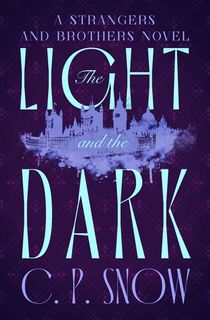
The Light and the Dark
Based on Snow’s own friendship with Coptic scholar Charles Allberry, The Light and the Dark shows “a master craftsman” (New York Times) at work, as Lewis Eliot and his friend Roy Calvert navigate a Cambridge university as the shadows of war lengthen across Europe.
Prone to unpredictable melancholies, Roy Calvert finds himself drawn down dangerous intellectual paths that will find resonances in Snow’s award-winning follow-up novel, The Masters.
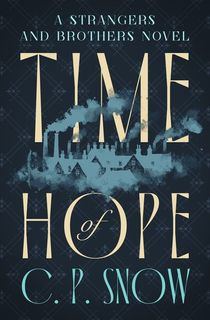
Time of Hope
The third book published in Snow’s “Strangers and Brothers” series, Time of Hope nonetheless takes place first, chronologically. It tells of Lewis Eliot’s early life and his efforts to become a barrister, despite his impoverished upbringing in a small English town at the beginning of the 20th century.
“A book of introspective portraiture rather than a novel of action” (Kirkus Reviews), it also introduces readers to Lewis’s courtship of his wife Sheila, and other characters who will play roles in forthcoming volumes of the series.

The Masters
Winner of the James Tait Black Memorial Prize, The Masters has been hailed as “perhaps the most engrossing academic novel in English” (New York Times).
With its insider view of life at Cambridge, The Masters explores a microcosm of the political divisions which were shaking Europe in the 1930s, as two men vie for the position of a dying master of the university. Since its original publication in 1951, it has become probably Snow’s best-known work and one of the cornerstones of his considerable literary reputation.
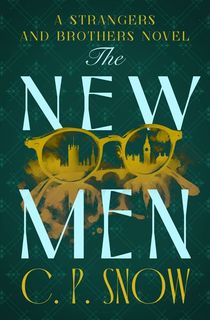
The New Men
Along with The Masters, The New Men was honored with the James Tait Black Memorial Prize in 1954. It concerns several Cambridge researchers (including Lewis Eliot) who become involved in an attempt to beat the Americans to the development of nuclear weapons during World War II.
While the research facility described in the novel is fictional, the race to develop the bomb was very real, and Snow draws from actual history to craft this “quiet drama of intellectual inquiry” (Kirkus Reviews).
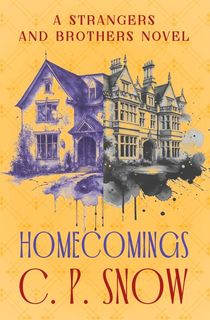
Homecomings
Readers first met Lewis Eliot’s troubled wife Sheila all the way back in Time of Hope. In Homecomings, we see their tumultuous marriage end in tragedy, as Sheila takes her own life. Devastated, Lewis tries to move on by throwing himself into his work at the Ministry, but when he meets Margaret, he sees a possibility for a new future.
There’s just one complication: Margaret already has a husband. “Impressive in its breadth and control” (Kirkus Reviews), Homecomings is a reminder of why Snow has been hailed as “an extremely shrewd observer of men and society” (Commentary).
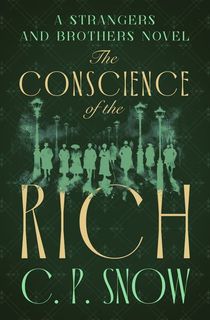
The Conscience of the Rich
The seventh of Snow’s “Strangers and Brothers” books, The Conscience of the Rich is nonetheless the third in chronology, telling the story of a prominent and wealthy Jewish family prior to World War II.
Even as Europe teeters on the precipice of war, schisms within the family drive a wedge between father and son in this “wise, beautifully controlled, and deeply moving novel” (New York Times Book Review) that remains one of Snow’s most beloved.
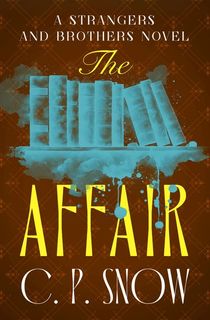
The Affair
The war is over and Lewis Eliot has settled into a new life in the aftermath of his wife’s tragic demise. Yet, all is not well. At his Cambridge college, a don has been dismissed for committing academic fraud.
Eliot, however, has reason to believe that the case is not so clear-cut as it at first appears, and as the school’s students, faculty, and alumni grow divided, he may have to step into a hornet’s nest in order to avoid a miscarriage of justice in this novel that is “only the latest evidence to confirm that [‘telling us the way things are’] is a job at which C. P. Snow excels” (Commentary).
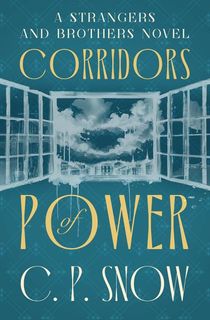
Corridors of Power
One of Snow’s most enduring contributions to the language was the phrase “corridors of power,” first coined in Homecomings, which serves as the title for the ninth book in his “Strangers and Brothers” saga.
In “a sound reading of the political, moral, and ideological temper of the times” (Kirkus Reviews), Corridors of Power follows an ambitious cabinet minister whose strong opinions about the Cold War are endangered by his susceptibility to blackmail—leading to one of Snow’s most memorable books.
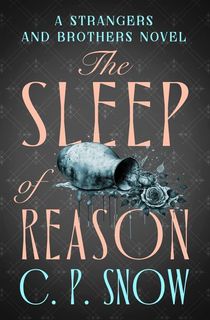
The Sleep of Reason
An aging and semi-retired Lewis Eliot returns to the hometown of his boyhood and becomes embroiled in a monstrous child murder case in this novel of “clarity and perceptiveness” (The Atlantic) as both Snow and his narrator seek to understand an England that is gripped by the drastic social upheavals of the 1960s.
Read it to see why Queen’s Quarterly raved that Snow “looks at the social condition so that he can see better the human condition.”
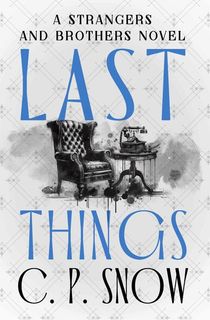
Last Things
Looking back at Snow’s considerable literary career, Time magazine observed that “Snow’s respectable achievement has been to make honest drama out of the undramatic stuff of compromise.”
That’s an epitaph that feels particularly apt for the last of the Strangers and Brothers novels, which sees Lewis Eliot reflecting on the life that he has lived, and looking toward a future that will be lived by his adult son, who is part of a generation that he struggles to understand.
